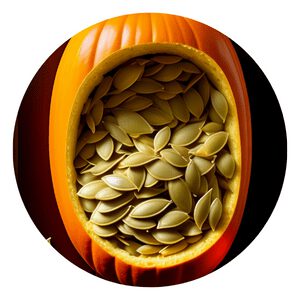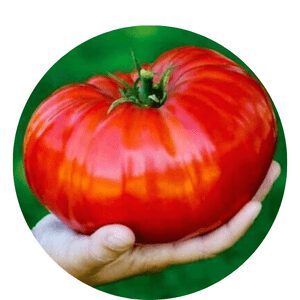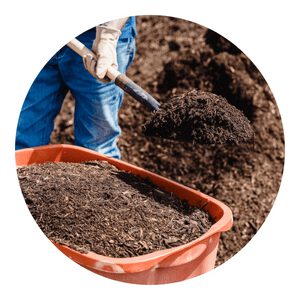Can You Grow Zucchini in Florida
Zucchini is a versatile vegetable that can be used in many dishes and is very popular amongst gardeners.
Growing zucchini in Florida, however, may present some unique challenges due to the extreme temperatures and humidity levels of the state.
To successfully cultivate a crop of zucchini in Florida, it’s important to understand the climate and soil requirements as well as how to prepare and maintain your garden.
Florida Zucchini Menu
Factors that affect zucchini growth in Florida
Zucchini is a summer squash plant that can be grown in Florida with relatively good success, depending on the environmental conditions.
The key factors for optimizing zucchini growth in the Sunshine State include temperature, soil type, moisture levels and sunlight.
When it comes to temperature, zucchini thrives when the air and soil temperatures are between 65°F (18°C) and 85°F (29°C).
Zucchinis prefer well-draining soil with a pH level between 6.0 and 7.5, as they tend to struggle in soils where drainage is poor or very sandy.
To ensure optimal growth, water your plants consistently but not overly so – aim for 1 inch of water per week – and ensure that your plants get at least 6 hours of direct sunlight per day.
Additionally, adding organic matter such as compost or aged manure to your soil can help enrich it and promote healthy root development in zucchini plants.
Climate and Soil Requirements for Growing Zucchini
Yes, you can grow zucchini in Florida.
The climate in the Sunshine State is generally warm and humid, making it a great environment for growing this popular summer squash.
Zucchini plants thrive in full sun and require plenty of warmth to produce high yields of fruits.
They need temperatures between 65-85°F (18-29°C) for optimal growth and fruit production.
In addition to the right climate, zucchinis also need well-drained soil with a pH level between 6-7.5 for optimal growth.
They are heavy feeders that require nutrients to produce large harvests; compost or aged manure mixed into the soil before planting will provide the required nutrients.
For best results, water your zucchini plants consistently throughout their growing period – about 1 inch per week is ideal – but avoid overwatering as this can cause root rot or other diseases.
The ideal temperature, sunlight, and soil
The ideal temperature for growing zucchini is between 65-85°F.
It is important to ensure that the temperature does not exceed this range, or else the plants may become stressed and produce less fruit.
When it comes to sunlight, zucchini thrive in full sun and need at least 6-8 hours of direct sunlight each day.
Lastly, it’s best to plant your zucchiin in well-draining soil with an acidic pH level between 5.5 and 7.0.
Mixing aged compost into your soil will help ensure that you provide all the necessary nutrients for healthy growth and production of fruits.
How Florida's climate and soil can meet these requirements
Florida’s climate and soil can provide the optimal conditions for growing zucchini.
Its warm, humid weather is ideal for this warm-season crop, especially in the southern and central regions of the state.
The temperature should be at least 65°F during the day and no more than 85°F.
Zucchini will not tolerate temperatures below 50°F or above 95°F.
Florida’s sandy soils drain well, allowing zucchini roots to breathe without becoming waterlogged or bogged down with excess moisture.
It also has plenty of organic material to help keep relevant nutrients available for the plants growth.
The soil should be nitrogen rich, so adding fertilizer can help promote healthy growth when needed.
Additionally, a pH level between 6-7 helps ensure that nutrients are easily accessible for absorption by plant roots; most areas in Florida have a slightly acidic soil pH that usually falls within this range.
Finally, it is important to make sure there is adequate sunlight exposure around 8 hours per day as zucchinis need full sun to thrive and produce quality fruit.
With its abundant sunshine and nutrient rich soils, Florida provides an ideal environment for growing zucchini successfully!
The potential challenges and ways to overcome them
Zucchini is a type of summer squash that thrives in warmer climates with plenty of sunshine and warm temperatures.
Florida, with its long growing season and hot temperatures, can be an ideal place to grow zucchini.
However, there are some potential challenges to growing zucchini in Florida that gardeners need to be aware of.
The most common challenge faced when trying to grow zucchini in Florida is pests and diseases.
Zucchinis can be attacked by pests such as aphids, cucumber beetles, squash bugs and more.
To protect your plants from pests, consider using companion planting or floating row covers to create a barrier between the pest and your crops.
Additionally, make sure you are regularly monitoring for signs of disease such as webbing on the leaves or stunted growth which could indicate powdery mildew or other fungal diseases.
For best results when growing zucchinis in Florida’s climate it’s important to choose varieties suited for the area such as ‘Dark Star’ or ‘Cocozelle’ and ensuring proper soil preparation before planting including adding organic matter like compost or manure for nutrients needed throughout their growth cycle.
With these tips and tricks you should be able to have success growing zucchinis in Florida!
Choosing the Right Zucchini Variety for Florida
When it comes to growing zucchini in Florida, there are several different varieties to choose from.
One of the most popular varieties is Black Beauty, a heat-tolerant variety that produces large fruit with dark green skin and white flesh.
This variety is best planted in late spring or early summer when the soil temperatures reach 80°F or higher.
Another great option for Florida gardeners is Costata Romanesco, an heirloom variety known for its sweet flavor and high yields.
This variety can be planted as soon as the soil reaches 65°F and will produce fruits from midsummer through fall.
If you’re looking for something a bit more compact, consider Early Prolific Straightneck, a bush-type plant that can produce up to 8 fruit per plant!
Finally, if you want to extend your harvest season into winter months, try Winter Luxury Pie pumpkin; this semi-bush type grows up to 5 pounds of delicious orange pumpkins with an intense flavor perfect for baking pies and other desserts.
Sunny and warm, Florida is the ideal place to sow. For zucchini to thrive, it just takes some know-how. Full sun and good soil are the key ingredients, And with vigilance from pests the crop prospers undisturbed. Make sure your seasons are right and plant quick when times are ripe; The perfect mix of soil, water and off you will take flight. Harvest with care and prepare for a bountiful reward; Zucchini can grown in Florida for sure! Ahoy! Aboard!
Chappy The Gardener
The different types of zucchini
There are a variety of different types of zucchini available, each with its own unique characteristics.
The most popular cultivar is the Black Beauty Zucchini, which is a dark green variety with slightly ribbed skin and tender flesh.
It grows quickly and has an excellent flavor when harvested at the peak of ripeness.
Another popular variety is the 8 Ball Zucchini, which is a round, medium-sized squash that has very sweet flesh and an attractive yellow-green color when ripe.
The Cocozella di Napoli Zucchini is another type that produces small, cylindrical fruits with light green stripes over deep green skin.
This variety is quite flavorful and great for adding to salads or baked goods.
Lastly, the White Scallop Zucchini features creamy white skin with scalloped edges and has smooth flesh that makes it perfect for stir fry dishes or roasting whole on the grill.
The zucchini varieties that are best suited for Florida's climate and soil
Florida is an excellent place to grow zucchini due to its warm and humid climate.
Zucchini requires well-drained, rich soil and plenty of sunlight.
Many varieties of zucchini are suitable for Florida’s climate and soil, including Black Beauty, Costata Romanesco, Raven, Raven Zucchino Rampicante, Seneca Apple Squash, and White Bush Scallop.
Black Beauty is a popular heirloom variety that produces dark green fruit with white stripes.
Costata Romanesco has pale green skin with gentle ridges running along the length of the squash.
This variety can reach up to 8 inches in length when ripe.
Raven is an early-maturing hybrid variety with deep green fruits that have white speckles on them.
Raven Zucchinio Rampicante is a vining variety with spiny leaves and dark green cylindrical fruits that can be harvested young or left to mature into large squash up to 10 inches long.
Seneca Apple Squash has small round fruit about 4 inches in diameter with yellow-green skin covered in freckles or stripes of gray-brown coloration.
Finally, White Bush Scallop produces small white flowers followed by light green fruits that have a sweet flavor when eaten fresh from the garden.
Comparison of the recommended varieties and their features
The recommended varieties for growing zucchini in Florida are: Early Prolific Straightneck, Seneca Summer Crookneck, and Cocozelle.
Each of these varieties is well-suited to the climate and soil conditions in Florida.
Early Prolific Straightneck is a hybrid variety that produces high yields of cylindrical fruits with light green skin.
It matures quickly, with fruits ready to harvest in just 50 days after planting. This variety is especially popular due to its disease resistance and excellent flavor.
Seneca Summer Crookneck produces bright yellow fruits with a curved neck shape.
Fruits have a mild flavor that makes them ideal for eating both raw or cooked.
This variety needs slightly longer to mature than Early Prolific Straightneck, taking around 55 days before it’s ready to harvest.
Finally, Cocozelle is an heirloom variety with long, dark green striped fruits that have a delicious sweet taste when ripe.
This is one of the most vigorous varieties available but takes 80-90 days from germination until it’s ready for harvesting so it may not be suitable for those wanting quick results from their crop!
Best Practices for Growing Zucchini in Florida
Because Florida has a warm, humid climate, it is the perfect place to grow zucchini.
It is important to select the right variety for your area, as some may not be suited for the heat and humidity.
When planting zucchini in Florida, start seeds indoors about two weeks before the last frost of winter so they can be transplanted outside after all danger of frost has passed.
Zucchini needs full sun and well-draining soil that is high in organic matter, such as compost or aged manure.
The soil should have a pH between 6.0 and 7.5 for optimal growth.
Water deeply but infrequently and mulch around plants to help retain moisture in the soil and keep weeds at bay.
Fertilize every 4-6 weeks with an all-purpose fertilizer to ensure proper nutrition throughout the season.
Harvest zucchini when they are 8 inches long or smaller, as larger fruits will be tough and seedy inside.
The specific steps and techniques for planting
Zucchini is a warm-season vegetable that is grown from seed or seedlings planted in late spring or early summer when temperatures are consistently warm.
Planting should occur after the danger of frost has passed and the soil temperature is above 60 F.
When planting, prepare the soil with compost to improve drainage and add nutrients for optimal growth.
Space plants about 24 inches apart and 1 inch deep in rows that are 5 feet apart.
Be sure to keep plants well-watered throughout their growing season as they require at least an inch of water per week, more during periods of extreme heat or dryness.
If hand weeding is needed, do so carefully to avoid damaging roots and stems.
As zucchini grows it will need support; providing stakes or a trellis will help keep them upright and off the ground which encourages better air circulation around the fruits helping prevent disease.
Harvest your zucchini when they are 6-7 inches long for best flavor and texture; this should be about 40 days after planting for most varieties.
The challenges that Florida gardeners may encounter
It is important to choose the right variety of zucchini for the climate and soil type of your garden.
Zucchinis love heat and humidity and require full sun, well-drained soil with lots of organic matter, and consistent moisture.
The most common challenge that Florida gardeners will face when growing zucchini is disease issues due to high humidity.
Rotating crops each year, spacing plants properly, avoiding overhead irrigation, removing diseased plants promptly, and using appropriate fungicides are some ways to reduce the risk of disease problems in a Florida garden.
Additionally, pests such as squash beetles can damage zucchini leaves; insecticidal soap or neem oil can help address this problem.
Finally, controlling weeds near your zucchini plants is essential for keeping them healthy as weeds compete for resources such as water and nutrients from the soil.
Tips for maximizing the yield and quality
Yes, zucchini can be grown in Florida.
The key to maximizing the yield and quality of the zucchini harvest is to ensure optimal soil conditions and provide ample sunlight.
Planting in well-drained soils with plenty of organic matter will help promote healthy growth and development.
Adding a layer of mulch around each plant will also help keep the soil moist and prevent weeds from competing for nutrients.
Additionally, zucchini requires at least 6 hours of direct sunlight per day, so choose an area that gets plenty of sunshine throughout the day.
Finally, water your plants regularly, as dry soil can lead to poor yields or even death of the plant itself.
During hot summer months, it is important to give your plants about 1 inch of water each week; if rainfall does not occur naturally during this time then you should supplement with irrigation methods such as drip irrigation or sprinklers.
Taking these steps will help ensure a successful harvest with high yields and quality fruits!
Common Zucchini Problems in Florida and Solutions
However, the warm and humid climate can lead to a number of issues.
Some of the most common problems with zucchini in Florida include squash vine borers, cucumber beetles, and powdery mildew.
Squash vine borers are one of the biggest threats to zucchini plants in Florida.
These moths lay eggs near the stems and when they hatch, their larvae feed on the stem interior which causes wilting and death of an entire plant.
To prevent this problem, it’s best to use row covers or floating row covers over your crop until harvest time.
Cucumber beetles are another pest that commonly attack zucchinis in Florida.
They feed on leaves and fruits which results in wilted foliage and deformed fruits.
Neem oil is a great natural solution for controlling cucumber beetle infestations as it disrupts their life cycle while also remaining safe for humans and pets alike.
Finally, powdery mildew is one of the most common fungal diseases affecting zucchinis in Florida’s hot weather conditions.
This fungus thrives on high humidity levels so it’s important to keep your crop well-ventilated by spacing them out at least 18 inches apart from each other.
The common issues that affect zucchini growth in Florida
Pests are a major issue for zucchini growth in Florida.
Squash bugs, cucumber beetles, and flea beetles are among the most common insects that feed on the foliage and fruit of zucchini plants.
They can cause significant damage by eating away at leaves, stems and fruits, reducing yields and weakening plants. In some cases they can even transmit diseases to the plant.
To prevent pest damage it is important to use row covers or other physical barriers while monitoring regularly for any pests present.
Diseases can also affect zucchini growth in Florida; some of the more common fungal diseases include downy mildew, powdery mildew, and bacterial wilt.
These diseases can spread rapidly through spores carried by air currents or splashing water from rain or irrigation.
It is essential to practice crop rotation between different families of vegetables as well as using disease resistant varieties when possible for prevention strategies.
Additionally proper spacing between plants will help reduce humidity levels which reduces risk of infection from nearby diseased plants.
Environmental stress such as too much sunlight or heat can also be an issue for growing zucchini in Florida’s warm climate.
Too much sun exposure can result in stunted growth or even death of the plant due to overheating or desiccation if adequate water is not applied during dry spells throughout the season.
The symptoms and signs of each problem
Zucchini is a warm-season crop, thriving in the heat and humidity of the Sunshine State.
Depending on where you are located in Florida, zucchini can be grown from spring through fall with some protection from extreme temperatures.
To ensure success with growing zucchini, it is important to identify and treat common problems that may arise.
Powdery mildew is one such problem which affects both the leaves and fruit of a zucchini plant.
Symptoms of powdery mildew include white or gray patches on foliage that turn yellowish as the infection progresses.
Fruit may also have lesions with fuzzy white patches and eventually become misshapen or cracked before rotting away completely.
To rid plants of this infection, fungicides should be used when symptoms first appear.
Another common issue for growing zucchini in Florida is squash vine borer larvae infestation–which feed on stems at an early stage before migrating into fruit later on in development..
Signs of this pest include wilting leaves despite adequate soil moisture and splitting stems near the base of plants; ultimately causing entire plants to die off quickly if not treated right away with insecticides like Sevin Dust or pyrethrin dusts.
Recommendation of the organic solutions for each problem
Organic solutions for growing zucchini in Florida include planting a variety of squash and pumpkins, which can help to attract beneficial insects. Additionally, as a preventative measure against disease, ensuring regular crop rotation and keeping the garden clean is necessary.
Composting will also provide the plants with essential nutrients required for growth.
To control pests such as aphids or cucumber beetles, use organic deterrents such as neem oil or pyrethrin spray.
Chemical solutions are also available to aid in growing zucchini in Florida.
Applying fertilizers containing nitrogen and other micronutrients helps promote healthy plant growth.
Additionally, using insecticides specifically designed for controlling pests is an effective way to treat an infestation without damaging the environment or affecting beneficial organisms in the garden area.
In order to protect against fungal diseases like powdery mildew, applying fungicide may be necessary depending on the severity of infection present.
In conclusion, zucchini is an easy vegetable to grow in Florida.
With the right soil and adequate watering, these plants will thrive in the warm climate.
There are a few things to consider when deciding where to plant your zucchini, as they require full sun and lots of room for their vines to spread out.
Additionally, make sure the soil is well-drained, as standing water can cause rot.
Click To Grow
Helps Us Grow – Share If You Like


















